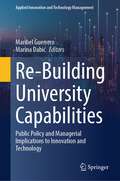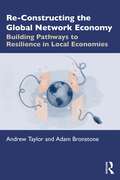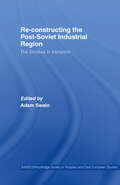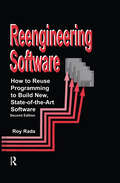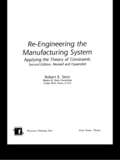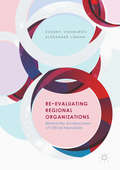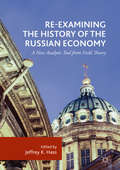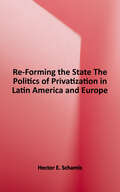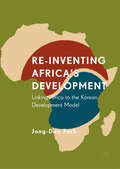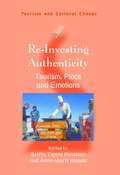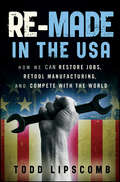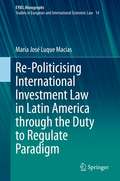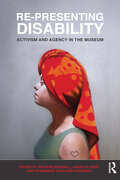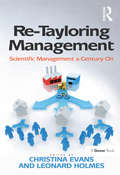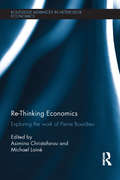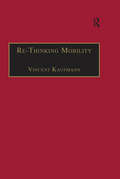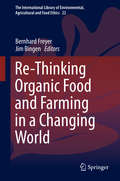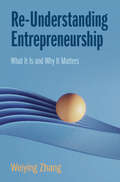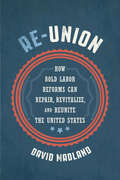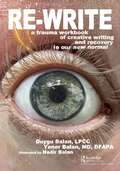- Table View
- List View
Raymond James Financial
by David B. GodesRaymond James Financial (RJF) currently sells financial services through two channels. It is considering adding a third in the "middle" of the other two. The current strategy has one channel with employees and another with independent contractors. These attract very different financial advisers with various interests. The new proposal would create a "quasi" employee who would have some of the benefits of being an employee, but enjoy a lot more freedom than a traditional employee in running his or her own business. Raises many important issues at a general level as well as those specific to service industries. First, students must decide how many different services the firm should offer. How targeted should the firm be? How does the firm ensure that the right people select the right offering? Which salespeople should sell in which model? Given the competitive dynamic, the class is able to discuss why an adviser comes to work at RJF as compared with another firm and what this means for his or her business. Offers an opportunity to apply marketing principles to a human resources problem and discuss how test markets differ between business and consumer marketing and between products and services.
Raymond Mushroom Corp.
by Benson P. Shapiro Julia StifflerIn April 1984 Deborah Raymond, president of Raymond Mushrooms was deciding whether or not to raise prices on Raymond canned mushrooms in conjunction with an advertising promotional program to build consumer preference.
Razões pelas quais fui descartado: A Jihad Da Economia
by Jo M. Sekimonyo Ellen Cristina Bussaglia da SilvaQue diabo me possuiu para que eu escrevesse este livro? Bem, depois de vagar, dando meus trocados aos egos e asfixiados pela pobreza, em todos os países por onde fui abençoado ou amaldiçoado por viajar, me perguntava repetidamente, o que mais posso fazer? Estava cansado das palhaçadas dos guardiões do capitalismo, irritado com a incapacidade dos que se chamam a reencarnação de Karl Marx e exausto de esperar por um super-herói. Escrevi este livro para despertar a consciência do público em geral e lançar um pensamento que provoca soluções para a dureza sócio-econômica global. Histórias sobre desigualdade são contadas o tempo todo. No entanto, decidi mexer no debate por um novo caminho, esperamos que tenha sucesso. Este livro é para todos os que estão cheios do status quo e se decepcionaram com os intelectuais imbecis. Deixe-me primeiro tranqüilizar a maioria das pessoas que podem se intimidar ao pegar meu livro, uma vez que souberem que é um livro político e econômico. É mais fácil responder a pergunta sobre o que o livro fala. Não há cálculos ou gráficos. Deixei aos druidas da economia a necessidade de inflar seus egos e a todos os sabichões que desorientam o mundo com teorias loucas que não condizem com a realidade. Meu livro é um caso contra o status quo sócio-econômico, uma volta de montanha-russa pela nuvem de cinzas vulcânicas para todos nós que falimos, nos ferimos e perdemos as esperanças da forma de economia dominante atual: o capitalismo. E então, seguro a mão do leitor pelo novo paradigma do século XXI que mudará tudo. E bem no final, trago a solução que despertará as massas. Espero que o único desafio deste livro seja a terminologia e os conceitos que apresento ao leitor ao qual ele deve se ajustar, tal como o Etosismo.
Re-Building University Capabilities: Public Policy and Managerial Implications to Innovation and Technology (Applied Innovation and Technology Management)
by Marina Dabić Maribel GuerreroAlthough most universities could be considered bureaucrat organizations, the accumulated knowledge reveals that universities try to adapt their core activities and technological innovation processes to face the current socio-economic challenges. This book explores the ways in which universities have re-built multiple capabilities to support the development of applied innovation and manage new technologies. Concretely, this book (1) theoretically addresses the university managers’ view for re-building university capabilities due to the public policy agendas demands; and (2) empirically addresses the documentation of experiences and strategies adopted by universities in different contexts to achieve public policy agendas. These universities strategies include re-build entrepreneurial, innovative, digital, and sustainable capabilities. This book encourages researchers, scholars, academics, students and policy makers to re-think how universities are expanding equal opportunities related to high-quality higher education, innovative/entrepreneurial graduate options, and contributing to sustainable societal advance and well-being through research and community engagement.
Re-Constructing the Global Network Economy: Building Pathways to Resilience in Local Economies
by Andrew Taylor Adam BronstoneThis book looks at how to build more resilience into socio-economic networks within local communities. Understanding the relationships between attachment to place, complex systems and patterns of knowledge creation is not straightforward, but these relationships are emerging as the challenges that we face in bridging the gap between the social worlds that we inhabit and an emerging digital world. These issues have been brought into even sharper focus through changes resulting from the COVID-19 pandemic. On the one hand, forced familiarity with communication technologies is driving globalisation forwards, whilst on the other, the crisis has created awareness of dependencies and heightened desires for more local solutions. Plenty of books have been written about the rise of digital networks and the decline of local communities. This book takes a radical approach by identifying how these trends fit together and provides examples of how digital networks can be made to work for the local as well as the global economy. Using a case study approach, the book offers a clear-sighted view of the role of relational capital in specific places and organisations and shows the transformational impact that they can have at a micro level. The book deliberately seeks to shake up preconceived ideas and is ideal for strategy practitioners and policy makers within governments and NGOs involved in connecting local to wider network economies.
Re-Constructing the Post-Soviet Industrial Region: The Donbas in Transition (BASEES/Routledge Series on Russian and East European Studies)
by Adam SwainThis book examines the political economy of attempts to restructure the Donbass, one of the Soviet Union's most important 'old economy' 'rustbelt' industrial regions. It shows how local interest groups have successfully frustrated the central government's and the World Bank's proposed market-oriented restructuring, and how a manufacturing-based regional economy is surviving, partially, with restructuring postponed.
Re-Engineering Software: How to Re-Use Programming to Build New, State-of-the-Art Software
by Roy RadaCreating software of any kind is an enormously expensive proposition, whether for internal use or commercial application. The range of activities involved in engineering and creating software are mind-boggling in complexity. Yet, every time new software is developed, most programmers start from scratch without considering what might be re-used or salvaged from existing programs. Re-Engineering Software addresses the principles, approaches, support systems, underlying methodologies, and real case examples for re-using (and thus building on) previously existing software.
Re-Engineering the Manufacturing System: Applying the Theory of Constraints, Second Edition
by Robert E. SteinAn information systems trailblazer in the domains of decision support and factory and supply chain synchronization, the second edition of Re-Engineering the Manufacturing System stays true to its title, once again bestowing uniquely straightforward instructions for designing, installing, and operating manufacturing information systems. This updated and expanded source takes care to clarify the often blurred concepts of synchronization and optimization and offers implementation advice from four discrete angles to yield better bottom-line results. It shows how to exploit an information system, rolling ERP system implementation into the TOC framework to promote profit materialization.
Re-Evaluating Regional Organizations
by Alexander Libman Evgeny VinokurovThis book re-evaluates the regional organizations landscape and discusses how organizations with similar mandates can exercise strikingly different goals. Even economic organizations, which do not produce any outcomes in terms of economic cooperation, can be valuable for their members or individual stakeholders. The book's argument is supported by a combination of quantitative and qualitative methods. It employs a novel dataset of 60 regional organizations to establish correlations between members' goals and their characteristics. More than a dozen case studies in Latin America, Africa, Middle East, Southeast Asia, and post-Soviet Eurasia illustrate the theoretic arguments of how particular types of regional organizations come into existence and evolve. Finally, the book examines the remarkable resilience of regional organizations and considers the conditions under which the stakeholders are willing to abandon support.
Re-Examining the History of the Russian Economy: A New Analytic Tool from Field Theory
by Jeffrey K. HassThis book explores the application of field theory (patterns of interaction) to Russian economic history, and how social and political fields mediate the influences of institutions, structures, discourses and ideologies in the creation and dissemination of economic thinking, theory and practice. Using focused cases on Russia's economy from the mid-nineteenth century to the present, Hass and co-authors expand the empirical basis of field studies to provide new material on Russian economic history. The cases are divided into two complementary halves: i) The role of fields of institutions, discourses, and structures in the development of Russian economic thought, especially economic theories and discourses; and ii) The role of fields in the real adoption and implementation of policies in Soviet and Russian economic history. With developed discussion of fields and field theory, this book moves beyond sociology to demonstrate to other disciplines the relation of fields and field theory to other frameworks and methodological considerations for field analysis, as well as providing new empirical insights and narratives not as well-known abroad.
Re-Forming the State: The Politics of Privatization in Latin America and Europe (Interests, Identities And Institutions In Comparative Politics Ser.)
by Hector E. SchamisWith evidence drawn from Argentina, Chile, Mexico, Great Britain, and Hungary, Re-forming the State examines the processes leading to, and the political effects of, market reform experiments and focuses specifically on the patterns of collective action and coalition building that drive privatization. The author's argument calls into question established approaches in the discipline of economics and in the fields of comparative and international political economy. The experience of privatization shows that the public and the private are neither contradictory nor mutually exclusive spheres and that power relations between them are not necessarily zero-sum. To stress the point, the author borrows from the literature on state formation, which has extensively examined the historical processes of key private groups. The evidence presented shows why and how, by restructuring coalitional and institutional arenas, the state uses marketization to generate political order and distribute political power. Thus, the author specifies the conditions under which political change is conceived in terms of and channeled through economic policy; in other words, how the state is "re-formed" through privatization. Re-forming the State thus highlights how privatization is simultaneously a movement from public to private, but also a movement from non-state to state, as the reduction of state assets leads to institutional changes that increase state capacities for defining and enforcing property rights, extracting revenue, and centralizing administrative and political resources. Hector E. Schamis is an Assistant Professor of Government, at Cornell University.
Re-Inventing Africa's Development: Linking Africa to the Korean Development Model
by Jong-Dae ParkThis open access book analyses the development problems of sub-Sahara Africa (SSA) from the eyes of a Korean diplomat with knowledge of the economic growth Korea has experienced in recent decades. The author argues that Africa's development challenges are not due to a lack of resources but a lack of management, presenting an alternative to the traditional view that Africa's problems are caused by a lack of leadership. In exploring an approach based on mind-set and nation-building, rather than unity – which tends to promote individual or party interests rather than the broader country or national interests – the author suggests new solutions for SSA's economic growth, inspired by Korea's successful economic growth model much of which is focused on industrialisation. This book will be of interest to researchers, policymakers, NGOs and governmental bodies in economics, development and politics studying Africa's economic development, and Korea's economic growth model.
Re-Investing Authenticity
by Anne Marit Waade Britta Timm KnudsenFrom the highly influential concept of 'staged authenticity' discussed by Dean MacCannell, to the general claim of longing for authenticity on behalf of all Western consumers, made by Joseph Pine and James Gilmore, it is obvious that the concept of authenticity is still worth considering. This ground-breaking book re-thinks and re-invests in the notion of authenticity as a surplus of experiential meaning and feeling that derives from what we do at / in places. In Re-investing Authenticity - Tourism, Place and Emotions international scholars representing a wide range of disciplines, examine contemporary performances of authenticity in travel and tourism practices: From cultural place branding to individual pilgrim performances; from intensified experiences of imaginary crime scenes to the rhetorical features of the encounter with the traumatic and; from photography performing memories of place to experiences of wilderness producing excitement, this book demonstrates how the feeling of authenticity within places is produced.
Re-Made in the USA
by Todd LipscombA business-based rallying cry to reclaim the US economyThere is a nagging feeling that the U.S. is slipping as a nation and our people are powerless to do anything to fix it. Issues such as jobs, product quality and safety, wages, the economy, and our status as the world's leading superpower are all tied together with our massive trade deficit.Re-Made in the USA addresses these issues using the author's firsthand observations and analysis, and offers a practical plan for how we can get our economy and global status back.A practical action plan to get the nation back on trackIf you're worried about America when you start reading this book, you'll finish feeling empoweredTodd Lipscomb has a distinguished record in international businessAmerica's future does not have to be on the decline. In inspiring terms, Re-Made in the USA lays out the choice Americans have between doing nothing, and doing what we do best-rolling up our sleeves and working hard to fix the problem.
Re-Politicising International Investment Law in Latin America through the Duty to Regulate Paradigm (European Yearbook of International Economic Law #14)
by María José Luque MacíasThis book offers insights into how international investment law (IIL) has frustrated states’ protection of human rights in Latin America, and IIL has generally abstained from dealing with inter-regime frictions. In these circumstances, this study not only argues that IIL should be an object of contention and debate (‘politicisation’). It also contends that Latin American countries have traditionally been the frontrunners in the politicisation of international legal instruments protecting foreign investment, questioning whether the paradigms informing their claims’ articulation are adequate to frame this debate. It demonstrates that the so-called ‘right to regulate’ is the paradigm now prevalently used to challenge IIL, but that it is inadequate from a human rights perspective. Hence, the book calls for a re-politicisation of IIL in Latin America through a re-conceptualization of how states’ regulation of foreign investment is understood under international human rights law, which entails viewing it as an international duty. After determining what the ‘duty to regulate’ constitutes in relation to the right to water and indigenous peoples’ right to lands based on human rights doctrine, the book analyses the extent to which Latin American countries are currently re-politicising IIL through an articulation of this international duty, and arbitral tribunals’ responses to their argumentative strategies. Based on these findings, the book not only proposes investment treaties’ reform to anchor the ‘duty to regulate’ paradigm in IIL, and in the process, to induce tribunals’ engagement with human rights arguments when they come to underpin respondent states’ defences in investor-state dispute settlement (ISDS). In addition, drawing upon the (now likely defunct) idea of creating a regional ISDS tribunal, the book briefly reflects on options available to such a tribunal in terms of dealing with troubling normative/institutional interactions between regimes during ISDS proceedings.
Re-Presenting Disability: Activism and Agency in the Museum
by Rosemarie Garland-Thomson Richard Sandell Jocelyn DoddRe-Presenting Disability addresses issues surrounding disability representation in museums and galleries, a topic which is receiving much academic attention and is becoming an increasingly pressing issue for practitioners working in wide-ranging museums and related cultural organisations. This volume of provocative and timely contributions, brings together twenty researchers, practitioners and academics from different disciplinary, institutional and cultural contexts to explore issues surrounding the cultural representation of disabled people and, more particularly, the inclusion (as well as the marked absence) of disability-related narratives in museum and gallery displays. The diverse perspectives featured in the book offer fresh ways of interrogating and understanding contemporary representational practices as well as illuminating existing, related debates concerning identity politics, social agency and organisational purposes and responsibilities, which have considerable currency within museums and museum studies. Re-Presenting Disability explores such issues as: In what ways have disabled people and disability-related topics historically been represented in the collections and displays of museums and galleries? How can newly emerging representational forms and practices be viewed in relation to these historical approaches? How do emerging trends in museum practice – designed to counter prejudiced, stereotypical representations of disabled people – relate to broader developments in disability rights, debates in disability studies, as well as shifting interpretive practices in public history and mass media? What approaches can be deployed to mine and interrogate existing collections in order to investigate histories of disability and disabled people and to identify material evidence that might be marshalled to play a part in countering prejudice? What are the implications of these developments for contemporary collecting? How might such purposive displays be created and what dilemmas and challenges are curators, educators, designers and other actors in the exhibition-making process, likely to encounter along the way? How do audiences – disabled and non-disabled – respond to and engage with interpretive interventions designed to confront, undercut or reshape dominant regimes of representation that underpin and inform contemporary attitudes to disability?
Re-THINK-ing THINK: The Electric Car Company
by David Kiron Joseph B. LassiterOn January 5, 2010, 48-year-old Richard Canny was on his way to meet the Governor of Indiana. He was reading his newly issued press release, announcing that THINK planned to start automobile production in Elkhart County, Indiana and to launch its THINK City battery-operated electric vehicle (EV) in the North American market. The announcement boldly outlined plans to invest $43.5 million in a factory that could begin assembling vehicles in early 2011 and that was sized for a manufacturing capacity for more than 20,000 vehicles per year. A proven automotive industry executive, but a first-time entrepreneur, Canny was CEO of Think Global AS (THINK), a privately held Norwegian maker of battery-operated electric vehicles (EVs) that were rechargeable through residential electrical power outlets. With this announcement, Canny was committing the company to support the broad North American launch of its line of EVs, among the very first commercially available, highway-approved safe cars in the world that produced zero greenhouse gas tailpipe emissions.
Re-THINK-ing THINK: The Electric Car Company
by David Kiron Joseph B. LassiterOn January 5, 2010, 48-year-old Richard Canny was on his way to meet the Governor of Indiana. He was reading his newly issued press release, announcing that THINK planned to start automobile production in Elkhart County, Indiana and to launch its THINK City battery-operated electric vehicle (EV) in the North American market. The announcement boldly outlined plans to invest $43.5 million in a factory that could begin assembling vehicles in early 2011 and that was sized for a manufacturing capacity for more than 20,000 vehicles per year. A proven automotive industry executive, but a first-time entrepreneur, Canny was CEO of Think Global AS (THINK), a privately held Norwegian maker of battery-operated electric vehicles (EVs) that were rechargeable through residential electrical power outlets. With this announcement, Canny was committing the company to support the broad North American launch of its line of EVs, among the very first commercially available, highway-approved safe cars in the world that produced zero greenhouse gas tailpipe emissions.
Re-Tayloring Management: Scientific Management a Century On
by Leonard HolmesOver a century has passed and yet there is growing evidence that knowledge workers across the globe today are as constrained by F.W. Taylor's much-maligned The Principles of Scientific Management, as factory workers were in the early twentieth century. Re-Tayloring Management looks critically at Taylor's philosophy on management and contrasts it with other perspectives that have since emerged, along with the professionalization of management and the growth in business and management education. The contributors demonstrate that despite the complexity and uncertainty that organizations face, instead of designing work systems where knowledge and service workers have the freedom to apply knowledge and skills at the point they are most needed, managers are obsessed with maintaining tighter control. This approach conflicts with contemporary job design principles, which emphasise ’job crafting’, whereby individuals are encouraged to craft their role in a way that is congruent with their identity. Drawing on insights from academics with diverse backgrounds and interests, and organised around 'past', 'present' and 'future' themes, this book is a thought-provoking read for professional managers, as well as for postgraduate students and academics teaching and researching organizational studies and management.
Re-Thinking Economics: Exploring the Work of Pierre Bourdieu (Routledge Advances in Heterodox Economics)
by Asimina Christoforou Michael LainéOnce again, unfettered capitalism has failed. Promises for global prosperity and peace have given way to a world of deep recession, social upheaval and political instability. Once again, mainstream economics has proved its inadequacy. Despite its technical rigour and mathematical virtuosity, it failed dramatically to respond to the current crisis. Why is this so? Mainstream economics turns a blind eye to society. By assumption, it maims its analyses by wiping away what makes us what we are. There is pressing need for a critical discussion and new ideas. We therefore turn to the insightful and stimulating work of Pierre Bourdieu. Arguably one of the major sociologists ever, he was also a major ‘economist’. Yet his works on the economy have received only scant attention, especially from economists, be they ‘mainstream’ or ‘heterodox’. Bourdieu helps to take a broader view and enrich our scientific imagination. By including dimensions of power, intuitive behaviour and social structures within the scope of his analysis, he provides for an alternative foundation of economics, based on an integrated, interdisciplinary theory. For the first time, this volume fills this gap in economics by featuring state-of-the-art research and experts from different social science disciplines. This book constitutes a first step, and hopes to become a milestone. The book offers an innovative outlook and a unique source for social scientists of all fields, particularly economists and sociologists, who wish to engage in the study of Bourdieu and his economics with a view to developing a more pertinent theory. It will also constitute a useful reference for university students and administrators who would like to explore the economy from a Bourdieusian perspective.
Re-Thinking Mobility: Contemporary Sociology (Transport and Society)
by Vincent KaufmannAll too often, mobility is evoked as a preferred indicator in explanations of space-time compression and its impact. However, in failing to clearly distinguish speed potentials from their use, such analyses veer towards technological determinism, or else towards the normative domain. In order to avoid this trap, the motivations underlying mobility must be explored. This groundbreaking examination is carried out through a discussion of the following general question: to what extent can the speed potentials generated by technological transportation systems be considered as vectors of social change? It also provides an opportunity to study in greater depth the little-known field of the sociology of mobility. Following an examination of the existing controversies surrounding social fluidification, it proposes to rethink mobility using the new concept of motility. Current contributions to and research results in this new area are included and the book indicates possible new research directions, opening the way to a new form of general sociology.
Re-Thinking Organic Food and Farming in a Changing World
by Bernhard Freyer Jim BingenThis book is based on the assumption that "organic has lost its way". Paradoxically, it comes at a time when we witness the continuing of growth in organic food production and markets around the world. Yet, the book claims that organic has lost sight of its first or fundamental philosophical principles and ontological assumptions. The collection offers empirically grounded discussions that address the principles and fundamental assumptions of organic farming and marketing practices. The book draws attention to the core principles of organic and offers different clearly articulated and well-defined conceptual frameworks that offer new insights into organic practices. Divided into five parts, the book presents new perspectives on enduring issues, examines standards and certification, gives insights into much-discussed and additional market and consumer issues, and reviews the interplay of organic and conventional farming. The book concludes with a framework for rethinking ethics in the organic movement and reflections on the positioning of organic ethics.
Re-Understanding Entrepreneurship: What It Is and Why It Matters
by Weiying ZhangHow do entrepreneurs make decisions in the real world? Why are entrepreneurs absent from mainstream economics? What functions do entrepreneurs play in the market? What type of institutional environment is needed for entrepreneurship to play a role? Neoclassical economics is a market theory without entrepreneurship. This misconception distorts our understanding of how the real market works, leading to a theory of market failure that forms the common foundation of various government interventions. The market is not only an allocative process but, more importantly, a discovery and creative process. To understand the real market, Weiying Zhang argues that economics must shift from a price-centric to an entrepreneur-centric paradigm. Blending theory and narrative, Zhang intersects history with the present supporting his theory with relevant case studies. He argues that once entrepreneurship in the market is correctly understood, the foundation for government intervention is undermined and the economy can sustainably flourish.
Re-Union: How Bold Labor Reforms Can Repair, Revitalize, and Reunite the United States
by David MadlandIn Re-Union, David Madland explores how labor unions are essential to all workers. Yet, union systems are badly flawed and in need of rapid changes for reform. Madland's multilayered analysis presents a solution—a model to replace the existing firm-based collective bargaining with a larger, industry-scale bargaining method coupled with powerful incentives for union membership.These changes would represent a remarkable shift from the norm, but would be based on lessons from other countries, US history and current policy in several cities and states. In outlining the shift, Madland details how these proposals might mend the broken economic and political systems in the United States. He also uses three examples from Britain, Canada, and Australia to explore what there is yet to learn about this new system in other developed nations. Madland's practical advice in Re-Union extends to a proposal for how to implement the changes necessary to shift the current paradigm. This powerful call to action speaks directly to the workers affected by these policies—the very people seeking to have their voices recognized in a system that attempts to silence them.
Re-Write: A Trauma Workbook of Creative Writing and Recovery in Our New Normal
by Yener Balan Duygu BalanAttachment theory-based treatments including depth psychology, somatic psychology, holistic therapy, and Eye Movement Desensitization and Reprocessing (EMDR) are becoming even more popular and desired by clinicians, health systems, and the patients they care for. Up until recently, cognitive behavioral therapy and medication management were the mainstays for trauma-informed care, although we are witnessing a demand for a more somatic, holistic, and, therefore, deeper level of treatment to target attachment injury and change/re-write the trauma narrative. This book provides the response and tools to meet this current need. Due to the pandemic, lockdowns, and significant changes in our stability, the economy, sense of belonging, and community, there is a heightened level of triggering which has resulted in multifactorial trauma responses. The devastating traumatic impact spans nations, ages, and socioeconomic statuses. Unfortunately, domestic violence, child abuse, substance use, medical trauma, self-injury, suicide, and violence turned outwards have all increased significantly in the past two years. This workbook focuses on the healing journey of the trauma survivor, utilizing easy-to-use methodologies for long-lasting effects. It includes various exercises, writing prompts, coping mechanisms, and soothing techniques with the intention of allowing the person to create an individualized experience. This empowers the person to go in the order they choose, experiment with different techniques from different modalities, and find the ones that meet their needs the best. The authors also address generational trauma, societal trauma, and trauma at the family and individual levels, and their work can be used in conjunction with a clinical treatment plan or by the end user. Re-Write: A Trauma Workbook of Creative Writing and Recovery in Our New Normal employs practical strategies using evidence-based methodologies with psychological theory within a human-centered design framework.


